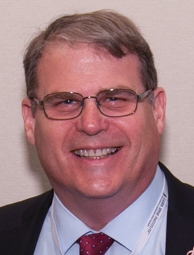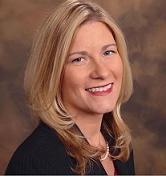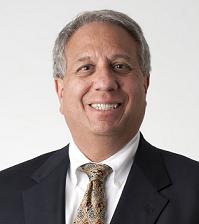Nine ambulatory surgery center administrators share what they think are the key areas for ASC leaders to focus on during the next year.
Sign up for our FREE E-Weekly for more coverage like this sent to your inbox!
Q: What do you think is the most important issue for ASC leaders to focus on in the next year?
 Joseph Ollayos, Administrator, Tri-Cities Surgery Center (Geneva, Ill.).
Joseph Ollayos, Administrator, Tri-Cities Surgery Center (Geneva, Ill.).
The most important issue: ICD-10. Ironically, this is not an item of strategic vision, but rather a mechanical implementation within the revenue cycle. The impact is so huge, however, that it becomes a strategic initiative affecting workflow, documentation, forms, coding-billing-collection, training and cash management.
There are several key items in mapping out an overall conversion plan:
1. Work with your center's billing and collection software vendor and clearinghouse to ensure they are ready to process claims with the new codes.
2. Invest in training your coder(s) in ICD-10 and provide necessary resource materials.
3. Revise encounter forms/superbills with the new codes.
4. Educate physicians and staff in using them.
5. Obtain a bank line-of-credit in the event that claims-processing temporarily slows down or stops around the October 1, 2014 implementation date. You'll be able to meet payroll and vendor obligations for the short term even if your cash flow is interrupted.
Also, consider assembling a task-force or workgroup to formulate and implement the conversion plan. Ideally the group will include a physician "champion" to oversee the process and provide for physician-to-physician communication, education and problem-solving.
 Monica M. Ziegler, MSN, CASC, Administrator, Physicians Surgical Center (Lebanon, Pa.) & Center for Specialized Surgery (Bethlehem, Pa.).
Monica M. Ziegler, MSN, CASC, Administrator, Physicians Surgical Center (Lebanon, Pa.) & Center for Specialized Surgery (Bethlehem, Pa.).
This is very dependent on the ASC. If you are at a new ASC, you focus on cost savings and consistency of care and supplies to create efficiency of care in process and costs. If you are an established ASC – contracts can make or break you. This will be an area where I will spend a good deal of time in the next 12 months. We need to analyze our existing contracts to assure that they are still meeting our needs. Did the annual increases to rates "wear off"? Are we covering our costs on all procedures? Which reimbursements per procedure are paying too low?, etc.
The challenge and fun of being an ASC administrator is that you really need to focus on all things at all times. We must be aware of the changes in regulations and standards; changes in our community; politics at the local, state and national level; factors affecting supplies, implants and medications; payor practices; and, at all times, have our fingers on the pulse of our centers so that we are successful in providing quality care in a cost-efficient manner.
 Jennifer Butterfield, RN, MBA, CNOR, Administrator, Lakes Surgery Center (West Bloomfield, Mich.).
Jennifer Butterfield, RN, MBA, CNOR, Administrator, Lakes Surgery Center (West Bloomfield, Mich.).
ASCs are unique in that we are entrepreneurial, we can quickly affect changes, we still need to delight our customers, physician, patients and employees, or we lose them. What ASC leaders need to understand is that its people that get all the work done. Regardless of the regulations, the rapidly changing healthcare system and the fear of the unknown, your business still boils down to its people.
You can't affect change without people who are ready, willing and able to do it. Train your people on how to handle stress, train them on how to prioritize, organize, and work together. Find people that are also entrepreneurial, can quickly change and who still want to delight their customers. Your organization will be the best and survive the worst if the people who work there are the best and are willing to do whatever they can to survive the worst.
 Bruce Kupper, CEO of MEDARVA Healthcare, Stony Point Surgery Center (Richmond, Va.).
Bruce Kupper, CEO of MEDARVA Healthcare, Stony Point Surgery Center (Richmond, Va.).
Distinguishing the ASC from hospital-based and hospital-controlled operating rooms is important. With this in mind, we need to emphasize the high quality care, high levels of service, very low infection rates, highly efficient operations and low costs, as well as the almost non-existent bureaucracy to our patients, the community, our surgeons, the insurance companies and CMS.
 Stephanie Martin, BSN, RN, CNOR, CASC, Administrator, St. Augustine (Fla.) Surgery Center.
Stephanie Martin, BSN, RN, CNOR, CASC, Administrator, St. Augustine (Fla.) Surgery Center.
The most important issue is to increase awareness about what ASCs do for the American public, not only in Washington, but for John Q Public as well. There are large numbers of people that do not know the savings and safety that are available in a surgery center. As the public becomes more responsible for their healthcare spending dollars, they need to be educated about the services that ASCs can safely provide and the savings they will have.
Lynn Winter, RN, BSN, Administrator, Surgical Center of St. Louis (Bridgeton, Mo).
Hospital competition. Although ASCs have gained more recognition in the last 10 years, we still have a long way to go to compete with the power of the hospital systems.
 Janice Stewart, RN BSN, nurse Administrator, SurgCenter of Bel Air (Md.).
Janice Stewart, RN BSN, nurse Administrator, SurgCenter of Bel Air (Md.).
Just to be able to continue to keep costs down in order to still provide services to the patients without losing money is the most important issue. Having a viable, efficient surgery center will be what every center is striving for.
Nate Garner, MHSM, MBA, Administrator, Sunrise Ambulatory Surgical Center (Lakeside, Ariz.).
In order to take a more active role in the current healthcare environment, surgery centers must be recognized as the beacons of quality care and efficiency that they are. As quality indicators are currently being monitored with more scrutiny, it is critical that surgery centers continue to operate at the highest levels of quality. By proving that surgeries can be safely and effectively performed in the outpatient setting, surgery centers will become more attractive to patients and insurance companies looking for cost savings in this age of healthcare reform.
Ginny Pecora, RN, Administrator of Oregon Eye Surgery Center (Eugene).
The most important issue is making known the quality of care given and the cost savings in ASCs as opposed to hospitals. Reimbursement needs to be the same as hospitals!
More Articles on ASC Issues:
9 Tips for Selecting a Cloud-Based Provider
6 Philosophies for Resilient Ambulatory Surgery Centers
Are ASCs Prepared to Win in the Future Healthcare Marketplace? Q&A With Lee Lasris

